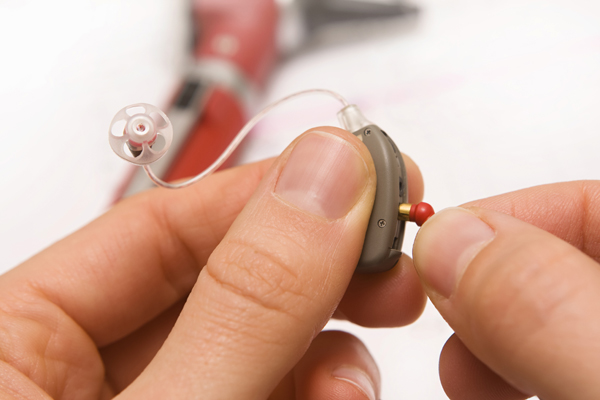
Daily Care for Hearing Aids
Hearing aids are an expensive investment. As such, it is important to take proper care of them in order to maintain their function for a long time. During your hearing aid fitting, your audiologist or other hearing healthcare professional likely taught you how to care for your hearing aids. Nevertheless, it is always a good idea to take a refresher course by reading up on how to take care of your hearing aids the right way. Consider the following tips as a checklist for routine daily hearing aid care. Tools you will need to conduct the regular care include:
- Listening tube
- Battery tester
- Forced air blower
- Drying container
Regular hearing aid care
- Perform listening checks: Use a listening tube to determine the clarity of sound coming from the hearing aids. Listen to determine whether the sound is scratchy or weak instead of sharp and clear. If you aren’t sure how to tell the difference, ask your audiologist for help.
- Check the batteries: Use a battery tester to check the life and longevity of your batteries. Weak batteries can cause poor or intermittent sound.
- Clean the hearing aids regularly: Perhaps the most important part of proper hearing aid care is daily cleaning. At the end of the day, check for dirt and grime on the earmolds, tubing and casing. Use a damp cloth on earmolds only or a wax pick to get stubborn wax, dirt and grime off of your hearing aids.
- Keep moisture to a minimum: A wet or damp hearing aid is an unhappy one. Make sure to minimize moisture in the hearing aids by keeping them in a drying container overnight or when not in use. Make sure to take the batteries out of the hearing aid before placing them in such containers.
- Avoid feedback: Feedback occurs when the amplified sound comes out of the earmold and back into the microphone. Feedback is not normal, but it is common. Avoid feedback by making sure the hearing aid is fitted correctly in the ear canal.
- Make and keep follow up appointments: Hearing aids usually need to be checked twice a year. Make sure to schedule follow up appointments with your audiologist or other hearing healthcare professional to make sure your hearing aids are working properly and are still the right match for the type and degree of hearing loss you have.

